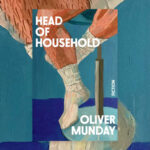In a genre that has historically been dominated by heterosexual white men, spy fiction is finally becoming home to a range of new intersectional feminist voices. I was in my 20s when I began working on my latest book, A Spy in the Struggle, and at the time, there were no politically charged spy novels by women, let alone women of color. Prior to my book coming out in 2020, Jamie Canavés of BookRiot said the following about it: “Add this to the list of fantastic mold-breaking spy novels like American Spy and the Vera Kelly series.”
A Spy in the Struggle is about a young Black woman attorney working for the FBI who develops divided loyalty when she is unexpectedly sent to infiltrate an African American eco-racial justice organization.
Inspired by true events, American Spy is about a Black female US spy who is sent to undermine Thomas Sankara, the president of Burkina Faso whose Communist ideology made him a target for American intervention in the 1980s.
The Vera Kelly series follows a young queer woman in the early 1960s through her CIA and freelance operations in the US and Latin America, as well as looking at the traumas and challenges of growing up queer and with Armenian heritage in the 1950s.
Once Canavés put our books in literary conversation. I began yearning to have an actual conversation with these two other women writers, about feminism, spy fiction, race/ethnicity, and politics. We began by talking about the spy fiction that influenced our work:
Lauren Wilkinson: The biggest influences were probably Invisible Man by Ralph Ellison, The Spy Who Came in from the Cold by John Le Carré, The Quiet American by Graham Greene, and of course Who is Vera Kelly? by Rosalie Knecht. Also Ian Fleming as an example of what I didn’t want my female characters to be.
Aya de Leon: I also read Fleming, and the sexism put me off, too. In college, I read Sam Greenlee’s The Spook Who Sat by the Door, and that heavily influenced my sense of social justice in spy fiction. Greenlee’s Black militancy was powerful, but in hindsight, his sexism is not that far from Fleming’s. A decade later, I read Mabel Maney’s lesbian James Bond spoof Kiss the Girls and Make Them Spy—still a favorite. On a more serious note, Francine Matthews’ The Cut Out was the first earnest female spy book I got my hands on.
A decade ago, I also started reading teen girl spy books by Ally Carter and Robin Benway. Both series had white protagonists, but I really loved them. They inspired me to begin my Black/Latina spy girl series, because I was so curious to see what girls of color could bring to the conversation.
Rosalie Knecht: Looking back, I realize that the names that come most easily are actually noir/detective novels rather than spy novels, which is interesting to me! The two genres are of course closely related and they both had their heyday at midcentury, and I would group them both under the umbrella of “noir,” which is what I think really interested me. I love the rhythms and preoccupations of Raymond Chandler and Dashiell Hammett, and wanted to write in a way that was shaped by those aesthetics in some way.
Aya: Even though I’m writing for both adult and younger audiences, all my work is set in present day. Given that both of you wrote historical books, what did spy fiction allow you to say about the eras you wrote about? Or what was going on politically in those eras that you wanted to address?
Lauren: Spy fiction has a lot of advantages as a genre, since espionage is both a pretty direct proxy for what is going on in the world and also highly personalized. It gave me the opportunity to really go deep on the legacies of colonialism and the Cold War, the dishonest and destructive nature of modern capitalism, and the misogyny that is prevalent in so many eras and areas of life.
Rosalie: From this perspective, almost ten years after I started writing the first Vera Kelly novel, I realize I was actually using the midcentury setting to avoid the present. Any contemporary novel about espionage would necessarily be concerned with the world created by the War on Terror post-9/11, and there was so much immediate pain and anger tied up in that that I just didn’t want to spend time there. It was an escapist move, to be honest, and it took me a little while of working on the first book to realize that while I could escape things like the PATRIOT Act and the entrapment and persecution of Muslims post-9/11 by moving backward in time, I couldn’t avoid engaging with the bigger and longer-terms questions of US covert foreign policy if I was going to write about spies. Questions of surveillance and targeting and violations of the sovereignty of other states have been baked into the post-war project of building an intelligence apparatus from the beginning. So those things did end up being part of the book.
Aya: We are all not just writing women, but writing intersectionally, looking at gender and Blackness or gender and queerness (and arguably ethnicity, as Vera has Armenian heritage). How did spy fiction allow you to explore those intersections?
Rosalie: I was interested in how hiding and keeping secrets functions in a person’s private life, not just their professional life, when they are doing this kind of work. In addition, I was interested in the question of what kind of pressures would drive a person to go into a field that would require this level of self-abnegation. In Vera’s case, she is first under pressure to make a living for herself, as a young woman from an affluent background who is now on her own, without the protection of either parents or a male partner, in a time when she would not necessarily have been able to sign a lease or open a bank account without a male guarantor. She’s open to careers that others might not be because of a lack of options. And she is used to having to hide who she is and what she cares about.
Lauren: Marie’s identity as a Black woman is what held her back in her career at the FBI and what made her essential for her CIA mission, so in that sense the hyper-masculine spy fiction genre really allowed me to seamlessly explore what it means to be Black and female across two very different cultures and the unique external and internal conflicts that Black women have to navigate.
Aya: It’s interesting how we were looking at similar issues. When spying on Black people, the CIA and FBI need Black spies. And because these intelligence agencies are definitely part of suppressing the power and freedom of Black communities and nations, it makes sense that the Black people they send to do their bidding will be candidates for divided loyalty. It was similar for Yolanda Vance.
Also, I’m fascinated by the idea of assimilation as part of spy training for Black people. And it’s relevant to issues of sexuality, as well. I taught the first Vera Kelly book, WHO IS VERA KELLY? this past semester in the MFA program at University of San Francisco. My students loved it, and it really resonated with my queer students—this idea that a lifetime of having to hide her sexual identity had prepared Vera to be a spy.
Rosalie: Do you have a particular audience (or individual reader!) in mind when you’re writing and has it changed over your career?
Lauren: While I did always hope that American Spy would have universal appeal, one of my primary goals in writing it was to create a Black female protagonist with whom I and other Black women and girls could identify, which is missing in a lot of mainstream fiction, particularly in the spy thriller genre.
Aya: In all of my work, I primarily write for women. And I center women of color. I think the biggest thing that has changed in my writing over time has been being the mother of a daughter. I find myself writing for younger audiences in part because I want to be in conversation with her and her generation.
Rosalie: Aya, you spoke about this a lot in the other piece, but it may be worth revisiting now—how do you think of the eternal debate of genre vs. literary? Do those categories feel useful to you? How do you think it changes readers’ expectations to find a book on one shelf vs. the other? Are there things you feel more free to do in one space rather than the other?
Aya: I think this divide is really rooted in classism—the idea that all things associated with upperclass people are superior, and everything associated with working class and poor people are inferior. Which is a lie, both in books and in real life. At first, I sort of lamented that I’d never be that heralded literary writer that all of my elite education was preparing me to see as the pinnacle of success. But this literary downward mobility has been an incredible gift. As a Black woman writer, genre fiction has given me this vast permission slip to write whatever stories I want, as long as the books are also sexy and action-packed. I’ve really enjoyed figuring out how to subvert sexism using romantic tropes, and how to explore complex political content during chase scenes and robberies and shootouts. My first six books landed at an urban fiction imprint of a commercial press, as paperback originals being sold at Target—decidedly not fancy. But I ended up being read by the Black and brown female audiences in the low-income urban fiction demographic, and that was a big part of the population I wanted to reach with social justice messages. It’ll be interesting to see what happens when my YA spy books hit the shelves with Undercover Latina next year. The adult books are definitely 18+, particularly the sex worker heist series. But the series with Candlewick are young YAs with chaste first kisses. So very different. And it’s clear that my work will have multiple audiences.
Lauren: I think that these categorizations are more a marketing tool to help guide readers towards books that might fit within their general interests, though they can also provide writers with structure, especially towards the beginning of the writing process. That said, books are highly complex with endless themes and subplots, which inevitably limits the usefulness of these labels. If readers take them too seriously, they can become needlessly disappointed for no other reason than that what they’re reading doesn’t fit neatly in the box that they expect. While the risk for writers is that their writing becomes formulaic and stale. My book has been described as literary, a spy thriller, and even as more of a romance novel. I think it is perfectly fine to have all of these elements working together, which is simply a reflection of real life.
Rosalie: Did either of you see this piece from a few years ago? It discusses the political implications of the classic workshop advice to “show, don’t tell” and how those workshops were part of the broader CIA-funded culture war, and it has been living rent-free in my head for years. Both of you have characters speaking directly to politics all the time in your work. Politics is right in the dialogue, rather than being pushed into the subtext. Did you ever feel constrained by the MFA dogma and general bias against being explicit about politics?
Lauren: I felt that I had to be careful about how much overt politics I included for some of the reasons that you mentioned, and because American readers can often feel uncomfortable reading political screeds, especially if it runs counter to their own beliefs. The other is so often caricatured. But I don’t think it would have been possible to tell Marie’s story without delving into her politics, both because her mission is so much less interesting if you don’t understand the political context on both sides, and because she is so conflicted internally about her role and what she is asked to do. Unlike a character like James Bond, whose allegiance and sense of mission remain largely unquestioned.
Aya: I started my MFA journey at the low residency program at Bennington in the late 90s. I was so naïve. The program was filled with racial and gender microaggressions, but people insisted that they were not political. I couldn’t adapt, and I dropped out after the first year. A decade later, I did my second MFA year at Antioch in LA, which was part of a social justice tradition.
This is part of why being relegated to genre is so freeing. I’m not even in the league where politics are supposed to be pushed into the subtext. And I choose politicized contexts—like working conditions for sex workers or the US government spying on its own citizens—that expose the corruption of the system. So there’s really no escape from the political implications.
What’s next for you in spy fiction or other work?
Lauren: Right now I’m working on a television series based on Libra by Don DeLillo and writing a novel about a supervillain. I hope to eventually write a sequel to American Spy which will most likely be from the perspective of Ross.
Aya: I’ve just sold a domestic espionage novel to Dafina—about a woman in a love triangle with a fossil fuel billionaire and a climate justice activist. And the Justice Hustlers heist series has been optioned for TV, so I’m helping the effort to make that happen. Also, I may be doing a work-for-hire spy story.
Rosalie: The final book in the Vera Kelly trilogy will be out from Tin House in June 2022. Meanwhile I’m working on something contemporary that doesn’t fit into any particular genre, and it’s exciting to be in a new and uncharted space but I think I’m going to miss this world! Maybe I’ll bring Vera back in a few decades, as a retired lady with a lot of dogs.




















